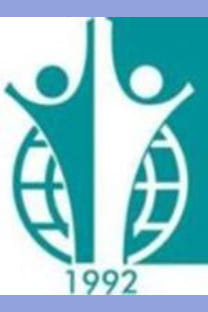İşletme Bölümü Öğrencilerinin Bölüm Gereksinimlerinin Kano Modeli ile Sınıflandırılması: Dokuz Eylül Üniversitesi, İşletme Fakültesi Uygulaması
Classification of Business Administration Faculty's Students Expectation with Using Kano Model: Applying of DEU Faculty of Business
___
- Akao, Y. (1988) Quality Function Deployment QFD Integrating Customer Requirement into Product Design . Portland Aregon : Productivity Press.
- Aytaç A. & Deniz V. (2005). Quality Function Deployment in Education: A Curriculum Review,Quality and Quantity ,Springer Netherlands Publish.
- Berger, C. (1993). Kano’s Methods for Understanding Customer – Defined Quality Center, Quality Management Journal, 2(4): 1-36.
- Cheng, J., Lo C., Liu, S. & Tsay, L.L. (2006). Application of QFD to The Assessment of Aircraft Maintenance Education. Department of Air Aeronuitical Engineering, National Huwei University Science and Technology.
- Cheng, W.L.E., Li, H. & Ho, C.K.D. (2002) Analytical Hierarchy Process (AHP) : A Defective Tool When Used Improperty Measuring Business Excellence: 33-37.
- Crosby, P. (1980). Quality is Free: The Art of Making Quality Certain. New York , New American Library.
- Dağdeviren, M. & Eren, T. (2001). Tedarikçi Firma Seçiminde Analitik Hiyerarşi Prosesi ve 0-1 Hedef Programlama Yönteminin Kullanılması . Gazi Üniversitesi Müh – Mim. Fakültesi Dergisi, 16(2): 41-45
- Erdem, S., Kavrukkoca, G. & Özdağoğlu, A. (2003). Kalite Kültüründe Kalite Fonksiyon Göçeriminin Rolü. 2. Ulusal Kalite Sempozyumu, DEÜ Bimer, İzmir .
- Guinta , L.R. & Praizler, N. (1993). The QFD Book / The Team Approach to Solving Problems and Satisfying Customers Through Quality Function Deployment, Amacom, New York, NY.
- Güllü, E. & Ulcay, Y. (2002) Kalite Fonksiyon Yayılımı ve Bir Uygulama. Uludağ Üniversitesi Müh – Mim. Fakültesi Dergisi, 7(1).
- Hauser, J.R. & Katz, G.M. (1998). You Are What You Measure. European Management Journal, October (Reprint).
- Ho, W. (2007). Integrated Analytic Hierarchy Process and Its Applications – A Literature Review. European Journal Of Operational Research.
- İlter, B., Özgen, Ö. & Aykol, B. (2007). Lise Öğrencilerinin Alışveriş Merkezi Gereksinimlerinin Kano Modeli ile Sınıflandırılması: İzmir İli Uygulaması.12.Ulusal Pazarlama Kongresi, 18-20 Ekim 2007, 15-37.
- Jones, T.O. & Sasser, W.E. (1995). Why Satisfied Customers Defect. Harvard Business Review Nov – Dec: 88-89.
- King, B. (1995). Designing Products and Services That Customers Want . Portland, Productivity Press.
- Kotler, P. & Arstrong, G. (2006). Principles of Marketing. Prentice Hall. USA .
- Levıtt, T. (1983). The Marketing Imagination. New York, The Free Press
- Matzler, K., Hınterhuber H.H. (1998). How to Make Product Development Projects More Succesful by Integrating Kano’s Model
- Oraman, Y. & Erbay, E.R. (2002). Şarapta Müşteri Memnuniyeti Dinamikleri ve Markalararası Rekabet Gücü, International Conference in Economic VI, Metu Ankara.
- Saaty, T.L. (2001). The Analytic Network Process : Decision Making With Dependence And Feedback. Pittsburg, Usa, Rws Publication.
- Savaş, H. & Ay, M. (2005). Üniversite Kütüphanesi Tasarımında Kalite Fonksiyon Göçerimi Uygulaması. Dokuz Eylül Üniveristesi Sosyal Bilimler Enstitüsü Dergisi, 7(3).
- Tütüncü, Ö. & Öter, Z. (2001). Turizm İşletmelerinde Kalite Fonksiyon Göçerimi: Seyahat İşletmelerine Yönelik Varsayımsal Bir Yaklaşım , Dokuz Eylül Üniversitesi Sosyal Bilimler Enstitüsü Dergisi, 3(3).
- Vaidya O.S., Kumar S. (2006). Analytic Hierarchy Process: An Overview of Applications. European Journal of Operation Research, 169 (1): 1-29.
- Yenginol, F. (2000). Yeni Ürün Geliştirmede Müşteri İstek ve İhtiyaçlarını Teknik Karakteristiklere Dönüştürmeyi Sağlayan Bir Yöntem: Kalite Fonksiyon Göçerimi, Dokuz Eylül Üniversitesi Sosyal Bilimler Enstitüsü, Doktora Tezi.
- Whıteley, R.C. (1991). The Customer Driven Company – Moving From Talk to Action, Addison Wesley.
- Dokuz Eylül Üniversitesi İşletme Bölümü Web Sayfası, (WWW:Web: http://www.deu.edu.tr/isletme/?kod=30&idx=12528&lang). World Education Forum: The Dakar Framework, (2000 April 26- 28).
- ISSN: 1303-0027
- Yayın Aralığı: 2
- Başlangıç: 2001
- Yayıncı: Dokuz Eylül Üniv. İşletme Fak.
İLAÇ SEKTÖRÜNDE KALİTE FONKSİYON GÖÇERİMİ (KFG) MATRİSİNİN OLUŞTURULMASI
Özlem İpekgil DOĞAN, Rabia İşık ARICAN
OTOMOTİV SEKTÖRÜ MÜŞTERİ ÖZEL ŞARTLARININ APQP SÜRECİ ADIMLARINA GÖÇERİMİ ÜZERİNE BİR ÇALIŞMA
Hasan Erdem İKİZ, Eralp DOĞU, Ahmet Özhan KESKİN
NEDEN KALİTE FONKSİYON "GÖÇERİMİ" ?
Otomotiv Sektörü Müşteri Özel Şartlarınının APQP Süreci Adımlarına Göçerimi Üzerine Bir Çalışma
Eralp DOĞU, Hasan Erdem İKİZ, Ahmet Özhan KESKİN
A QFD and SERVQUAL Approach to Hotel Service Design
Aysun Kapucugil IKİZ, Ali MASOUDİ
NEDEN KALİTE FONKSİYON "GÖÇERİMİ" ?
Yusuf Tansel İÇ, Mustafa YURDAKUL
ANALYSIS OF SELECTION CRITERIA FOR MANUFACTURING EMPLOYEES USING FUZZY- AHP
